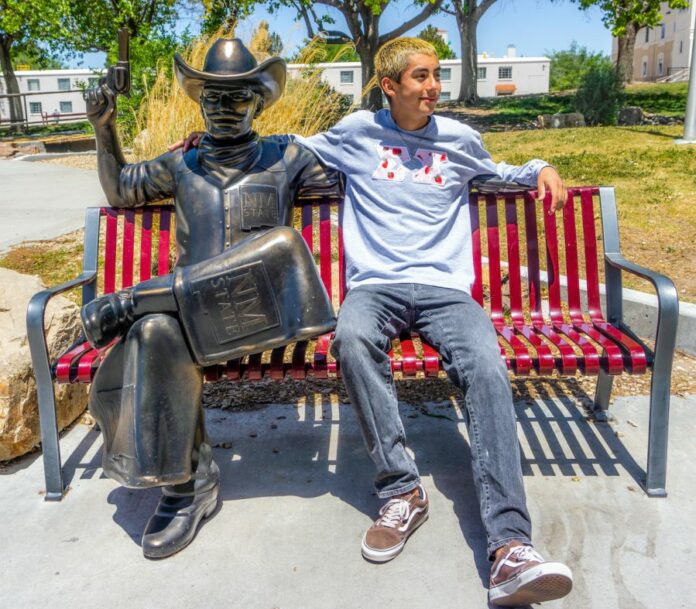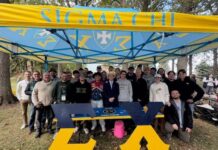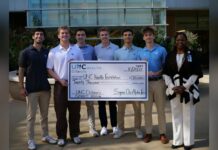
Sororities and fraternities are mainly known for the social aspect of their organizations, with date parties, sisterhoods, and other social events. But these Greek life organizations are also known for their vast dedication to an international or local philanthropy which they work to support through volunteering and/or fundraising.
One such fraternity, Sigma Chi, supports the Huntsman Cancer Foundation (HCF), which is dedicated to raising money for cancer research. An article by the University of Utah said, “Philanthropy has always been an integral part of Sigma Chi, with the undergraduates taking up the rallying cry of becoming ‘The Generation to End Cancer.’”
At New Mexico State University, that phrase and philanthropy have taken on a whole new meaning for the brothers of Sigma Chi. Not only do they desire to be the generation to end cancer for all, but they also want to conquer cancer for their brother Kyle Richardson.
Richardson is a recent pledge to Sigma Chi and was initially drawn to the fraternity for their support of the HCF. However, after getting to know the brothers within the chapter, he felt a connection like no other.
“I was initially drawn to Sigma Chi because of their philanthropy. After all that I had gone through it really excited me that I could be a part of an organization that raised money for cancer research,” Richardson said. “However, after meeting some of the brothers at the Greek picnic the week before rush I immediately fell in love with Sig. I knew that I had found my home away from home,” he added.
Richardson was diagnosed with stage 4 Hodgkins Lymphoma when he was 16-years-old and ended up going into remission after approximately 18 weeks of chemotherapy and radiation treatments.
“My body reacted very well to chemotherapy, and within six weeks the tumor in my chest had already shrunk by 90%, which is more than the doctors expected it to shrink after I had completed treatment. Since my body reacted so well to chemotherapy, I only had to do three weeks of radiation and after that, I was officially in remission,” Richardson said.
However, three years later, Richardson discovered that he relapsed on March 22, after finding a swollen lymph node in his neck.
“Finding out that I had relapsed and needed to start treatment immediately has been one of the most difficult things I’ve ever had to deal with. Las Cruces had finally felt more like home to me than my actual hometown, and suddenly, all of that was being ripped away from me,” Richardson said.






















